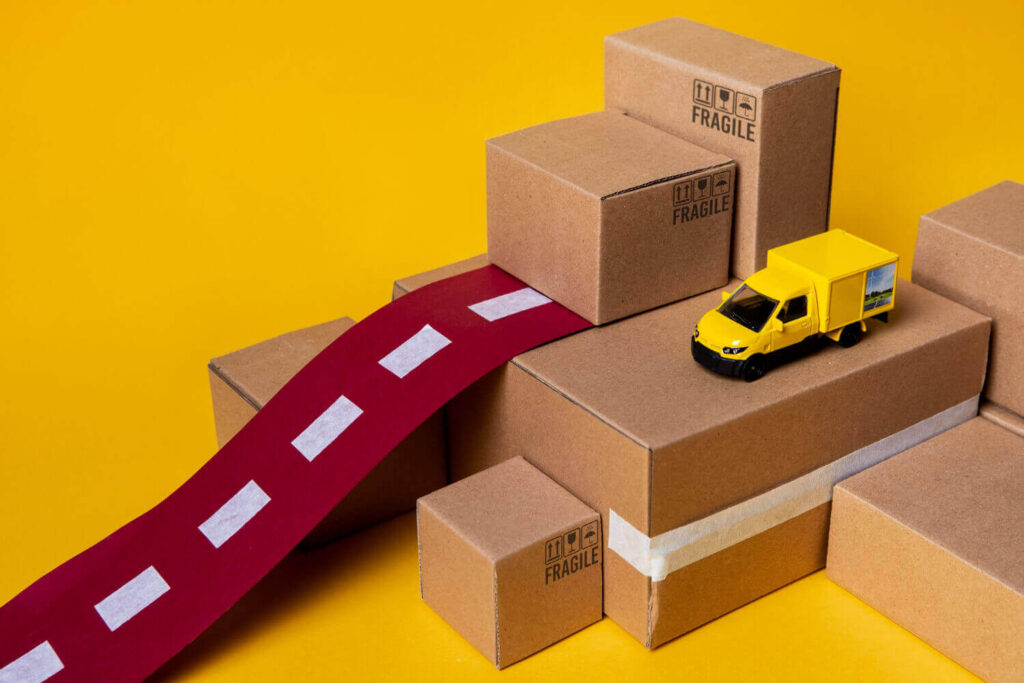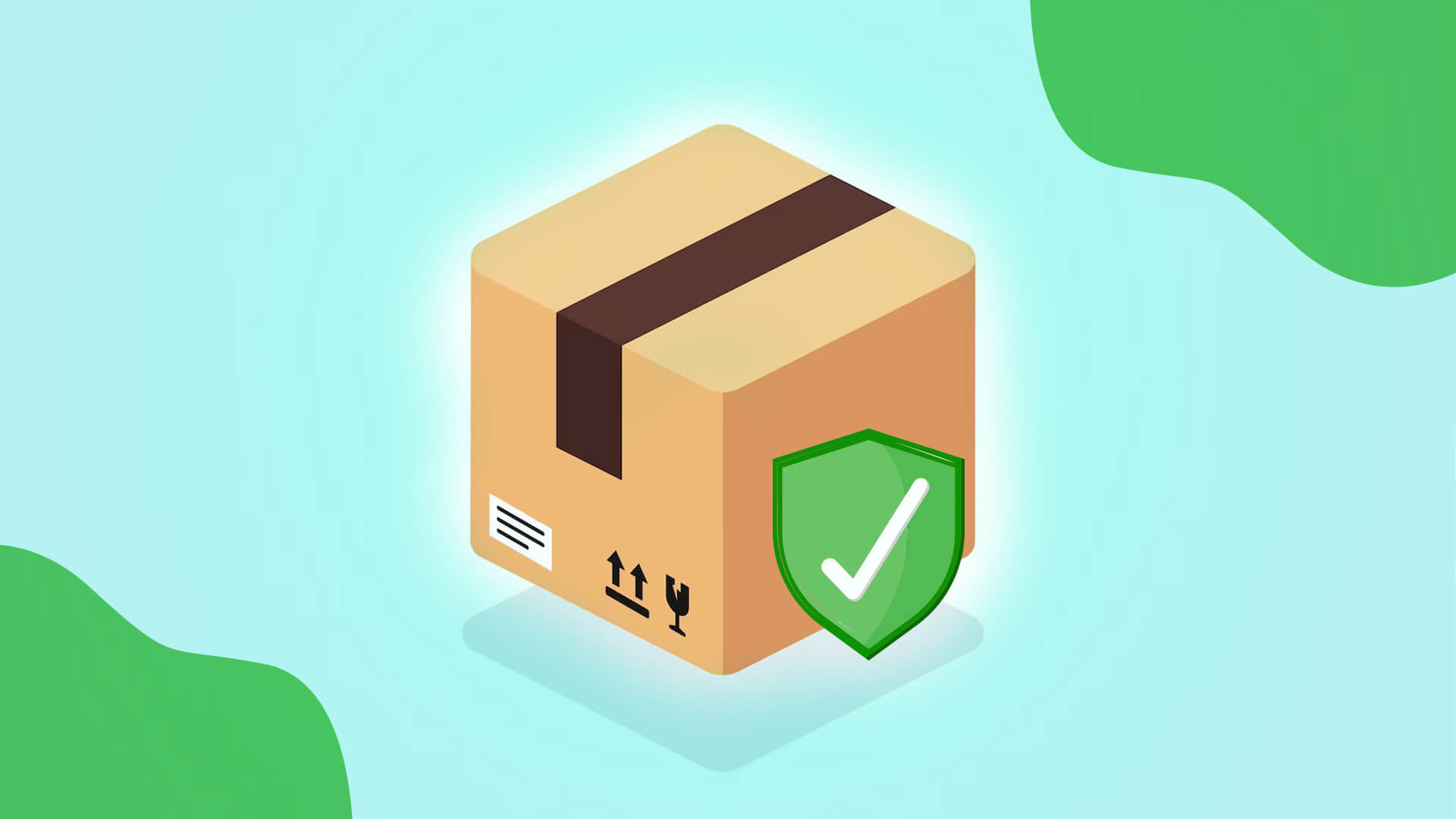Editor’s note: This post was initially published in November 2023 and has since been revised for comprehensiveness
The E-commerce world is exploding, and with it comes a skyrocketing demand for reliable shipping. Customers have grown accustomed to fast deliveries and a seamless experience, pushing top carriers to constantly improve their services. But even the most established and efficient shipping companies can’t prevent every mishap. Lost packages, misplaced items, or damage in transit can still occur, despite the best efforts of all parties involved.
These situations aren’t just frustrating for your customers; they can hurt your business financially. Replacing lost or damaged goods can be a big hit. That’s where shipping insurance steps in – it’s your safety net.
Wondering how it works and why it’s essential? We’ll break it all down in this blog post, so you can confidently insure your packages and protect your business.
Table of Contents
What Is Shipping Insurance?
Shipping insurance is a valuable financial protection service available to both shippers and recipients. It offers coverage for lost, stolen, or damaged shipments during their transportation journey.
In the unfortunate event of accidents, theft, or unforeseen circumstances, shipping insurance provides compensation for the declared value of the goods. This protects businesses and customers alike from suffering financial losses due to mishaps during shipping.
Essentially, shipping insurance acts as an investment that mitigates risk and fosters peace of mind. It ensures the secure and reliable delivery of goods from the sender to the recipient, fostering a smooth and worry-free experience for everyone involved.

Why is Ecommerce Shipping Insurance Important?
E-commerce relies on trust. WIth lost or stolen packages that trust can be damaged, leaving both sellers and customers frustrated.
Ecommerce shipping insurance goes beyond financial protection. It builds trust by safeguarding both parties. If a package goes missing, sellers can replace the item knowing they’ll be reimbursed. Customers receive replacements or refunds, minimizing inconvenience.
Shipping insurance also streamlines claims, allowing sellers to replace items faster. This efficiency builds trust and shows a commitment to customer satisfaction. As E-commerce shipping insurance fosters trust and a smooth experience for everyone.
What Insurance Covers And What Not?
Shipping insurance offers a vital safety net during the transportation of goods. Here’s a breakdown of what it typically covers and some key exclusions:
What Insurance Covers:
- Loss
If your shipment goes missing entirely and is not located after a thorough investigation, insurance typically reimburses you for the declared value of the goods.
- Theft
In the unfortunate event that your shipment is stolen during transit, insurance can compensate you for its declared value.
- Transit Damage
When unforeseen circumstances such as weather events or vandalism cause damage to your goods during shipping, insurance typically covers the repair or replacement costs, up to the declared value.
- Shipping Delays & Reshipment
Depending on your specific policy, some insurance plans may offer coverage for significant delays in delivery and reimburse associated reshipment costs.
What Insurance Doesn’t Cover:
- Self-Inflicted Damage
Shipping insurance generally does not cover damage caused by inherent flaws within the goods themselves, such as leaks or malfunctions.
- Improper Packaging
If your shipment is damaged due to inadequate packaging, most insurance policies will not provide reimbursement. The responsibility for proper packaging falls on the shipper.
- Customs & Taxes
Losses incurred from unpaid customs duties or taxes are not typically covered by shipping insurance.
- Wilful Misconduct
Insurance does not cover losses or damages resulting from intentional acts of misconduct.
It’s extremely important to carefully take a close look at the details of the insurance policy. Which will help you to fully understand both the coverage provided and any limitations that may apply.
What Type Of Ecommerce Insurance Coverage Is Available?
Shipping insurance comes in various forms to suit the value of your shipments and international needs. You can generally obtain coverage through either the carrier you choose or through independent insurance companies.
Here’s a breakdown of some common coverage options:
- Full-Value Coverage
This covers the entire declared value of your goods, including any shipping costs.
- Declared Value Coverage
You declare a specific value for your shipment, and the insurance covers losses up to that amount. This is a common option with carriers like UPS or FedEx.
- Freight Insurance
This type of insurance is typically used when the buyer is responsible for transportation costs.
- Warehouse-to-Warehouse Coverage
This extends protection from the point your shipment originates to its final destination, including any temporary storage locations along the way.
For international shipments, additional specialized insurance options exist:
- Marine Cargo Insurance
Designed specifically for goods transported by sea, this coverage protects against issues like sinking, fire, and piracy during the ocean voyage.
- International Shipping Insurance
This broad coverage extends from the seller’s location to the buyer’s, encompassing all modes of transport (sea, air, land) and any intermediate storage facilities. It offers comprehensive and continuous protection throughout the entire shipping journey.
By understanding these different types of coverage, you can select the shipping insurance that best protects your valuable items, both domestically and internationally.
Should You Get Shipping Insurance?
The decision to purchase shipping insurance typically hinges on the value of the item being shipped. For e-commerce businesses dealing in high-value goods like jewelry, electronics, designer clothing, antiques, and similar items, shipping insurance is a critical consideration.
If losing an item would cause substantial financial strain, then exploring your insurance options is strongly recommended. Without a policy, a lost shipment could result in significant financial losses for either the buyer or the seller.
Furthermore, long-distance shipments that pass through multiple warehouses and ports are more susceptible to loss or damage during transit. Therefore, e-commerce businesses that regularly ship internationally would be wise to invest in some form of shipping insurance.
Finally, customers who spend significant sums online expect their purchases to arrive safely and on time. Offering shipping insurance on all sales can provide a sense of security and trust, ultimately strengthening customer relationships.
To learn more about high value shipping insurances, you can give this blog a read.
Conclusion
The world of shipping is full of surprises, and unexpected events can leave your precious cargo lost, damaged, or delayed. That’s where ecommerce shipping insurance steps in as your safety net.
With a variety of coverage options available, you can find a plan that protects your business against the uncertainties of the shipping process. From financial reimbursement for lost or damaged goods to streamlined claims processes, the benefits of shipping insurance are undeniable.
Investing in shipping insurance not only protects your bottom line but also fosters trust with your customers. They’ll appreciate the extra layer of security knowing their purchases are covered in case of unforeseen circumstances.
Take control and explore your shipping insurance options today. Understanding coverage types and choosing a reliable provider can make a significant difference in ensuring the secure and efficient delivery of your goods. Don’t leave your business or your customers’ satisfaction to chance.
Invest in peace of mind by getting that shipping insurance and live a worry free shipping period!
FAQ
How Much Does It Cost To Ship With Insurance?
The cost of insuring your shipment depends on two factors: the company you choose to deliver your package (the carrier) and the value of the items you’re sending. There are also independent insurance companies that may offer coverage at a lower cost than these larger carriers.
How Does Shipping Insurance Work?
In the event of a missing or damaged package, a claim should be filed with the carrier or insurer responsible for the shipment. To ensure a smooth claims process, documentation verifying the value of the items must be provided. While locating lost or stolen packages may require an investigation by the carrier, typically lasting up to ten business days, claim processing itself is generally resolved within a few days.





0 Comments